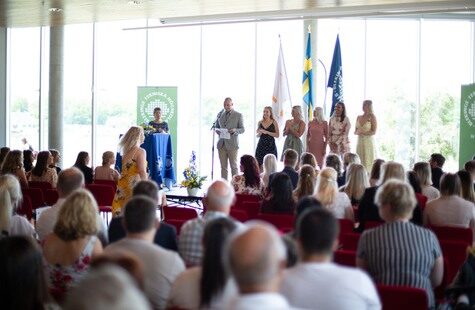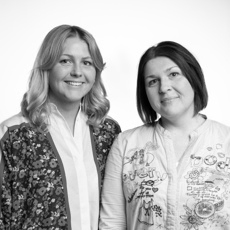Master’s Programme in Telecommunication Systems
120 credits
- Period : 2022-August-29 until 2024-June-02
- Location: Campus Karlskrona
- Type of instruction: On campus, day-time, full-time
- Application code: BTH-90573
- Language of instruction: English
- Programme syllabus: Download
It is no longer possible to apply to this occasion
Predict future challenges by learning to create, adapt and develop communication systems with an in-depth understanding of complex problems and solutions.
A problem solver with creative competence and analytical abilities
A Master’s degree in Telecommunication Systems allows you to apply your knowledge in different situations to analyse the context and to produce or adapt a tool or a system that resolves the issue. You choose and adapt different systems to the problems you face. You gain the competence required for development in current and future industrial circumstances. You also build a knowledge platform suited for work within academia and research.
An overall picture of the communication system of the future
The programme allows you to familiarise yourself with questions about challenges, problems and opportunities with various types of future communication systems, such as computer networks, the internet, cloud technology and software-based networks.
Proximity to research provides insight
The teaching consists of lectures, seminars and laboratories, and theoretical and practical studies take place close to researchers and research, which gives you a deep insight and understanding. You do a degree project based on current, relevant research, scientific articles and possibly your own studies.
Please contact Admissions Office with any questions regarding the entry requirements.
The programme consists of 120 credits and leads to a two-year Master’s degree.
The tuition fee is SEK 70,000 per semester. One semester corresponds to 30 ECTS credits. EU/EEA citizens are not required to pay fees.
BTH offers a scholarship programme for both prospective students and current students. Learn more about scholarships.

Programme content
Computer science
Uncategorized courses
Elective courses
The goal of this programme is to prepare you for qualified development work in industries as well as create a basis for postgraduate studies. The programme is focused on future communication networks and the problems and challenges that these will bring. After completing your studies, you should be able to apply the knowledge in different situations to analyse problems and create solutions. You will be able to choose and adapt different systems and tools in the field, and if necessary, create new tools to solve the problem.
The studies are conducted in close collaboration with researchers in telecommunications systems, which means you get a deeper understanding and a complete view of future communication networks.
During the programme, you will gain an understanding of basic definitions and concepts, design principles and methods, and the practical application of these in the field of telecommunications systems and computer networks. You will also gain knowledge of important protocols, methods of system evaluation, current trends and issues related to communication systems including performance and security issues.
The programme allows you to immerse yourself in the challenges, problems and possibilities that future computer communication systems will bring. The courses deal with issues concerning computer networks, the internet, mobile systems, cloud communications, software-defined networks (SDN), user-perceived service quality (QoE), network-based services and research methodology.
The teaching consists of lectures, seminars and theoretical and practical studies close to research and in contact with researchers, giving you a deep insight and understanding of relevant and updated knowledge within the field. The education consists of both individual tasks and team projects. The programme ends with a degree project (30 higher education credits) that usually takes place in close collaboration with industry and/or research projects.
Note! The course list is tentative. See the programme syllabus for an established course list.
Courses autumn semester 2022
Programming in UNIX Environment, 7,5 hp
Computer Communications, 7,5 hp
Introduction to Cloud Computing, 7,5 hp
Network and System Security, 7,5 hp
Courses spring semester 2023
Advanced Networking, 7,5 hp
Research Methodology in Computer Science, 7,5 hp
Mathematical Statistics, 7,5 hp
Network and Service Operations, 7,5 hp
Courses autumn semester 2023
Applied Artificial Intelligence, 7,5 hp
Capacity Analysis, 7,5 hp
Advanced Topic in Computing, 7,5 hp
Softwarized Networks, 7,5 hp *
Quality of Experience in Network-based Services, 7,5 hp *
* Valbar kurs
Courses spring semester 2024
Students who apply for a course or programme, and meet the general and specific entry requirements, compete with one another for available places. When there are more qualified applicants than there are places for an education, the places are distributed through a selection. Read about the selection methods and procedure here.
The study programmes at BTH are continuously monitored and developed through yearly follow-up dialogues, course evaluations after each completed course, and programme evaluations. Results from follow-ups and evaluations can lead to changes in the programmes. These changes are always communicated to the students.
Each educational programme is tied to an advisory board that discusses issues such as the quality of the programme, its development, and relevance for the labour market. In the advisory board, or a committee to the advisory board, teachers, external members, students and alumni are represented.
The programme gives you the theoretical and practical knowledge to master problem-solving skills necessary to face current and future challenges in telecommunication systems – taking your career to the next level.
Jorge
Student, Master’s Programme in Telecommunication Systems
Research

The research in computer science and engineering covers a broad area and BTH focuses on two areas: big data and AI as well as parallel computer systems.
Learn more about our research in computer science and engineering.
Good to know
Look below for information about how to apply, entry requirements and important dates.







